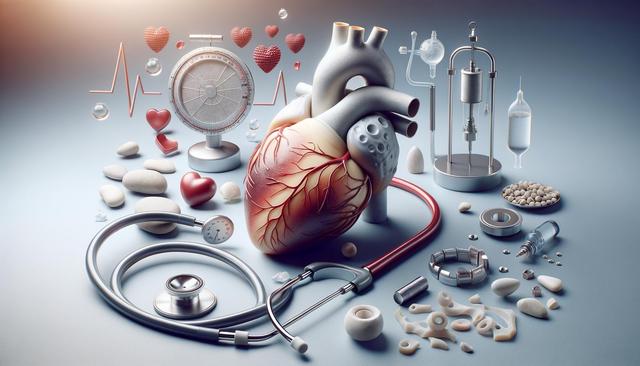What Is Aortic Valve Replacement?
Aortic valve replacement is a surgical procedure used to treat conditions such as aortic stenosis or aortic regurgitation, where the aortic valve fails to function properly. The procedure involves removing the damaged valve and replacing it with either a mechanical or biological valve. This surgery can be performed through open-heart surgery or via a less invasive method known as transcatheter aortic valve replacement (TAVR). The choice of procedure depends on various factors including patient age, overall health, and the severity of the valve disease.
In recent years, advancements in medical technology and surgical techniques have significantly improved the outcomes of aortic valve replacement. Surgeons now have access to highly sophisticated tools that allow for better precision and reduced recovery time. This has led to a growing interest in understanding survival rates and long-term outcomes of the procedure.
Factors Affecting Survival Rates
The survival rate after aortic valve replacement can vary depending on several key factors. These include:
- Age of the patient at the time of surgery
- Presence of other medical conditions such as diabetes or coronary artery disease
- The type of valve used (mechanical vs. biological)
- The method of surgery (open-heart vs. TAVR)
- Post-operative care and rehabilitation
Younger patients and those with fewer underlying health issues generally experience higher survival rates. Additionally, patients undergoing TAVR may face fewer complications and a quicker recovery, especially if they are considered high-risk for traditional surgery. However, mechanical valves may offer greater durability, which is an important consideration for younger individuals who may require a long-lasting solution.
Short-Term and Long-Term Survival Rates
Short-term survival rates following aortic valve replacement are generally favorable. Studies indicate that the 30-day survival rate after the procedure is over 95% for many patient groups. However, long-term outcomes are equally important when evaluating the success of the surgery. Research has shown that:
- Five-year survival rates can range between 70% and 85%, depending on patient demographics and health status
- Ten-year survival rates are typically lower, often between 50% and 70%
These figures highlight the importance of long-term monitoring and lifestyle adjustments following surgery. Regular check-ups and adherence to prescribed medications are essential in ensuring the durability of the replaced valve and overall heart health.
Recovery and Post-Operative Management
After undergoing aortic valve replacement, the recovery process is a critical phase that can significantly influence survival outcomes. Patients are usually monitored in an intensive care unit immediately after surgery before being transitioned to a regular hospital room. The total hospital stay may vary based on the type of surgery and the patient’s condition.
Rehabilitation programs often include:
- Physical therapy to improve cardiovascular endurance
- Nutritional counseling for heart-healthy eating
- Management of medications to prevent blood clots and infection
- Regular follow-up appointments to assess valve function
Engaging fully in a structured recovery plan can improve quality of life and reduce the risk of future complications. Patients are encouraged to maintain a healthy weight, avoid tobacco, and manage chronic conditions such as high blood pressure and cholesterol levels.
Making an Informed Decision
Choosing to undergo aortic valve replacement involves careful consideration of the risks, benefits, and expected outcomes. Survival rates, while reassuring, are only one part of the decision-making process. Patients are advised to have thorough discussions with their healthcare providers to understand their individual risk profile and the most suitable surgical approach for their condition.
Questions to ask your medical team may include:
- What are the expected short- and long-term outcomes for my specific case?
- What type of valve replacement is recommended and why?
- What should I expect during the recovery process?
- How will this procedure impact my daily life in the long run?
By staying informed and actively participating in their healthcare decisions, patients can improve their chances of a successful outcome and a better quality of life after aortic valve replacement.




Leave a Reply